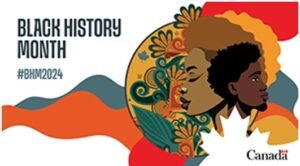In Hamilton, about 18 per cent of Black-led households were in core housing need in 2021. That means their housing is overcrowded, needs major repairs or costs more than 30 per cent of gross household income—and they couldn’t find suitable housing that they can afford in their community. About 13 per cent of all households are in core need in Hamilton. (Housing Assessment Resource Tools)
Young Black Canadians are disproportionately represented among homeless youth.
Black individuals experiencing homelessness are less likely to be identified for permanent supportive housing compared to their white counterparts.
Black women facing housing instability encounter higher eviction rates than their non-Black counterparts.
Systemic housing discrimination by landlords poses a significant challenge for Black Canadians seeking a place to live. (Canadian Alliance to End Homelessness)
In 2018, 48 per cent of Black Canadians owned their own home, compared to 73 per cent of the total population. Twenty-nine per cent of Black Canadians were in overcrowded housing, compared to just 9 per cent of the total population. Fifteen per cent of Black Canadians were in core housing need versus 9 per cent of the total Canadian population. (Statistics Canada)
Famed entertainer and civil rights activist Harry Belafonte and his young family found it difficult to find an apartment in New York City back in 1958 and he ended up sending his (white) publicist to the rental broker to collect a lease agreement for an apartment. A year later, Belafonte led a consortium that bought the apartment building and then offered co‑op shares to the tenants, creating a desegregated housing co‑op. (Co-operative Housing Federation of Canada, 2019)
his young family found it difficult to find an apartment in New York City back in 1958 and he ended up sending his (white) publicist to the rental broker to collect a lease agreement for an apartment. A year later, Belafonte led a consortium that bought the apartment building and then offered co‑op shares to the tenants, creating a desegregated housing co‑op. (Co-operative Housing Federation of Canada, 2019)